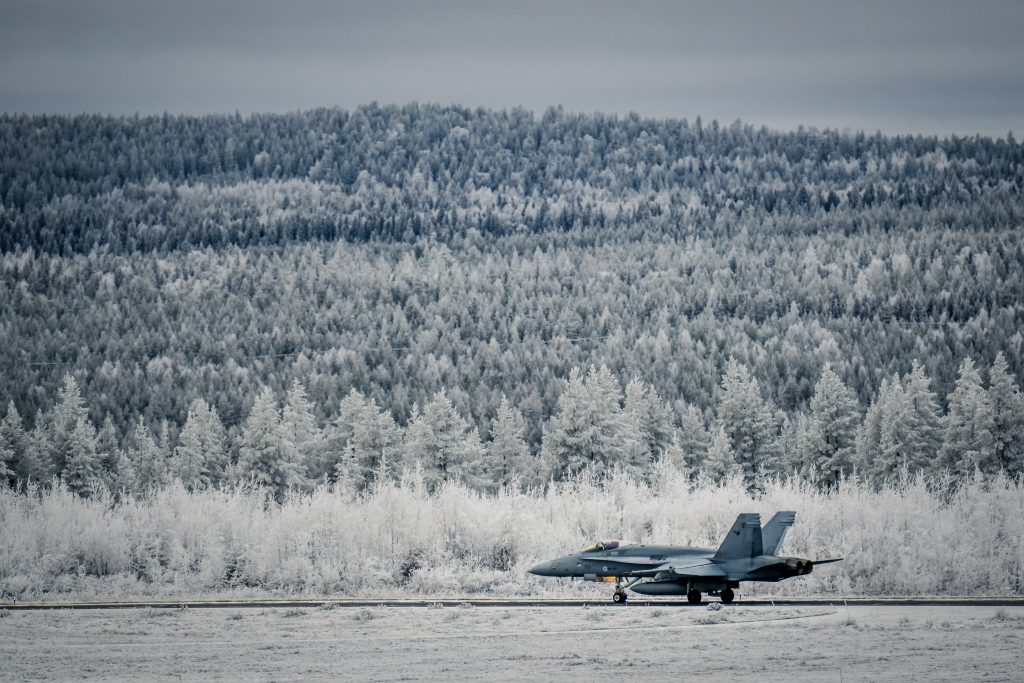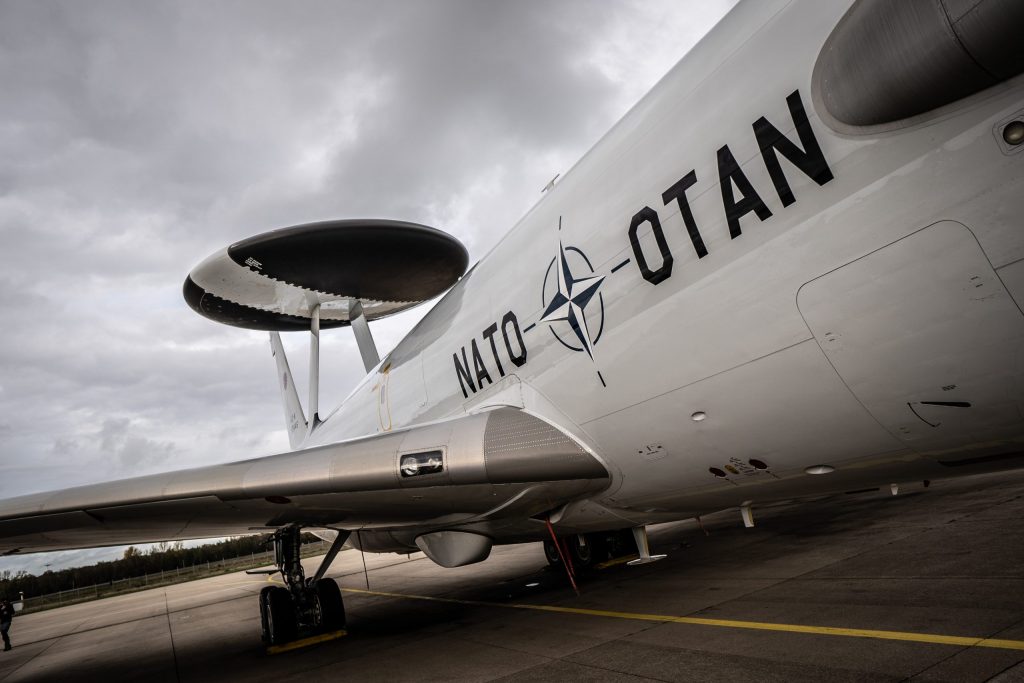On Wednesday, June 9, the Scowcroft Center’s Forward Defense practice area and Transatlantic Security Initiative hosted General Tod D. Wolters, USAF, Commander of US European Command (EUCOM) and Supreme Allied Commander Europe (SACEUR), to discuss the US and NATO’s approach to competition and evolving concept for defense and deterrence. The event explored the opportunities for—and challenges to—improving US and NATO operations in light of twenty-first century competition in the European theater.
Michael Andersson, Atlantic Council Board Director and Head of Strategic Partnerships and International Affairs at Saab, Inc., began by introducing General Wolters as the right person to discuss the future opportunities facing the United States and its transatlantic partners in the European theatre, given his two hats as Commander of EUCOM and as SACEUR, and similarly establishing the Atlantic Council as a fitting venue for such a discussion, given its transatlantic focus. General James L. Jones, Atlantic Council Executive Chairman Emeritus and former SACEUR, further emphasized the Scowcroft Center’s foundational belief that cooperation with allies and partners, and particularly NATO allies, will be necessary to face those challenges and achieve those priorities. He recognized that technologies emerging today—hypersonic weapons, artificial intelligence, and space-based capabilities, to name a few—offer great potential while, at the same time, transforming the problem set General Wolters faces as SACEUR. Such technologies could severely destabilize the European security environment, particularly when in the hands of Russia and China. General Jones then welcomed General Wolters, expressing his excitement for the General’s innovative solutions to twenty-first century security dilemmas.
General Wolters set the stage by describing the complex European security environment of today: rising political uncertainty, the diffusion of emerging technology, energy competition, and increasingly capable adversarial military forces seeking to take advantage of those weaknesses. Despite these threats, the transatlantic bond between the United States and Europe is and must remain the cornerstone of democracy and security in the twenty-first century. To protect this crucial bond, NATO in 2019 produced a Military Strategy for Comprehensive Defense and Shared Response, and in 2020 approved its Concept for the Deterrence and Defense of the Euro-Atlantic Area (DDA), both defining a common purpose and strategic approach for the Alliance. Under these protocols, NATO has unveiled a suite of new operations in each of the swathe of critical domains that will define warfare over the next decade. General Wolters argued that the allied forces in Europe are well-trained, well-prepared, and strong enough to deter modern adversaries. Moreover, the American presence in Europe is critical to strengthening shared transatlantic interests.
Clementine G. Starling, Deputy Director of Forward Defense and Resident Fellow of the Transatlantic Security Initiative, moderated the ensuing discussion, first asking General Wolters about the impact of COVID-19 on NATO operations. In response, General Wolters pointed out how the pandemic has forced nations of the alliance to improve transparency and collaboration in equipping their forces with the requisite personal protective equipment, effectively testing to catch cases early, and in rolling out the vaccine program. Though COVID-19 is still a major threat, NATO has been able to maintain its deterrence capabilities at pre-pandemic levels. Following up on the topic of non-traditional threats, Ms. Starling asked about the alliance’s ability to defend against hybrid attacks and malign influence, including misinformation, to prevent adversaries from gaining a foothold in Europe. General Wolters referred back to the NATO Strategy for Comprehensive Defense and Shared Response, and pointed out a connection to US Secretary of Defense Lloyd Austin’s concept of Integrated Defense. NATO countries, and the leaders within those countries, must remain active across traditional and emerging domains, taking into account the potential second- and third-order impacts of their operations on areas outside of their direct purview as well. Furthermore, while adversaries in the gray zone tend to avoid transparency and communication, NATO allies must hold a higher standard. NATO must be as vigilant and rigorous in its operations in the “competition” phase, or prior to conflict, as it is during the conflict itself.
Ms. Starling turned back to General Wolters’ hat as Commander of EUCOM to conclude the conversation, asking about the Department of Defense’s upcoming Global Force Posture Review, potential changes to deployments in Europe, and what further investments are needed to bolster US force posture in the region. General Wolters confirmed that NATO and EUCOM are prepared for any changes they may see in the coming months. He further emphasized the need for a global approach to force posture in a now globally connected world, where actions in the Pacific affect the strategic landscape in Europe, for example.
You can re-watch “Competition and Deterrence in Europe: A Conversation with General Tod D. Wolters, USEUCOM Commander and SACEUR” here or below. To read our latest reports, op-eds, and analyses, please visit the Forward Defense webpage and Transatlantic Security Initiative webpage.
Vikram Venkatram is a Young Global Professional for Forward Defense in the Atlantic Council’s Scowcroft Center for Strategy and Security.

Forward Defense, housed within the Scowcroft Center for Strategy and Security, generates ideas and connects stakeholders in the defense ecosystem to promote an enduring military advantage for the United States, its allies, and partners. Our work identifies the defense strategies, capabilities, and resources the United States needs to deter and, if necessary, prevail in future conflict.
Image: Photo: NATO

